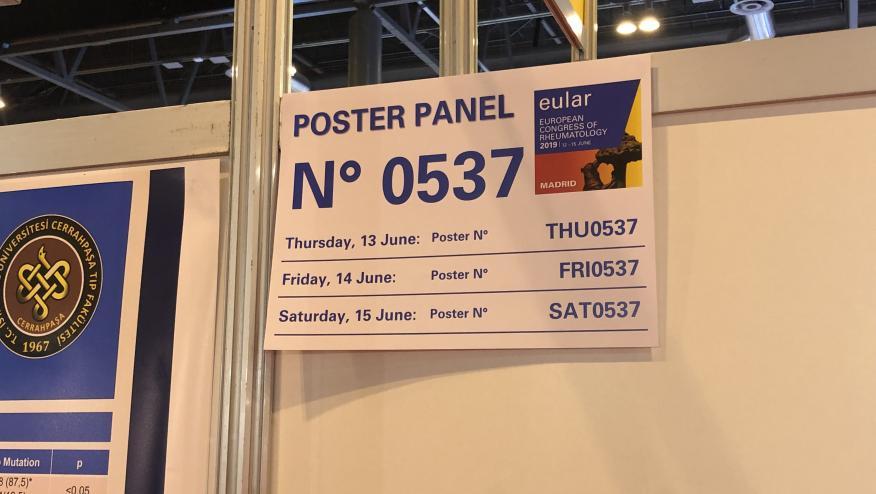EULAR 2025 – Day 2 Report Save

Day 2 was a full agenda for those attending EULAR 2025 in Barcelona with sessions on the management of RA, Behcets, Lupus and Hand Osteoarthritis. Clinical overviews on MAS, Ehlers-Danlos, Difficult to treat RA and PsA offered a wide variety of options to rheumatologists. Here are a few interesting presentations from today:
Neuroimmune Modulation in RESET-RA Study
- OP0190 was a phase 3 trial that assessed Vegas nerve stimulation as a means of improving active rheumatoid arthritis (RA). The intervention is a neurosurgeon implanted device (about the size of a vitamin pill), implanted near the carotid and Vagus nerve. The stimulator elicits a 60-second pulse to the vagal nerve, resulting in downregulation of pro-inflammatory cytokines, namely TNF, IL-1 and IL-6. A total 242 RA patients were randomized to receive active or sham vagal stimulation for 12 weeks. At 12 weeks the sham stimulator was turned on and the control population received neurostimulation from weeks 12 to 24. The primary endpoint was an ACR 20 at 12 weeks. Patients with well-established RA, on background csDMARDs started out with a mean DAS28-CRP of 5.4. Over 50% of the patients were seropositive. At week 12 the ACR 20 in the vagal stimulation group was significantly better (p = 0.02) than the sham group (~35% vs 25%). With another 12 weeks of stimulation the ACR20 response rose to 51% in both cohorts. At week 12 there were no major safety concerns and only 3/122 had a serious adverse event. A minority of patients had hoarseness or local insertion side effects that resolved. Overall, this was a positive study, albeit the magnitude of improvement at 12 weeks was somewhat less than you'd expect with other TNF inhibitors. Curiously the acr20 response did not achieve maximal values until week 24, with roughly a 40% rise in ACR20 from week 12 to week 24 – suggesting either partial cytokine inhibition or a somewhat different mechanism underlying this nonpharmacologic intervention.
Long-Term Safety of Avacopan
- OP0171. Avacopan, a c5a receptor antagonist, was studied by Tamura et al in 404 MPA and GPA patients in Japan. After 6 months nearly 75% of patients remained on avacopan, with the median use duration of 181 days. A total of 73 patients stopped the drug for adverse events, with more than half (48) of the AE’s being from a hepatic problem (19.6%). Most of the hepatic dysfunction was reported between days 29 and 84, of the 80 hepatic adverse events, 48 recovered. Serious adverse events were seen in 15.6% and there were 14 deaths. Serious infections were seen and 6.2% of patients. Overall, avacopan was effective with 76% of MPA/GPA patients having inactive disease by the 6th month.
GLP-1 Agonists in RA
- OP0069. Beltagy et al. presented findings from a retrospective analysis of two cohorts of RA patients (n=2,449 patients); all were on JAK inhibitors, but one group initiated GLP-1RA, while the other group did not. The primary outcomes were cardiovascular and reported after 5 years. RA patients on a GLP-1RA had a significant (36%) lower risk of acute coronary syndromes and a lower (36%) risk of deep venous thrombosis, with a trend towards a lower risk of acute cerebral infarction and peripheral arterial disease events, although the latter was not statistically significant. However, overall survival was not significant between groups. These data are encouraging as RA patients are at high risk for CV events and DVT (VTE) as well.
ADD THE FIRST COMMENT
Disclosures
The author has no conflicts of interest to disclose related to this subject










If you are a health practitioner, you may Login/Register to comment.
Due to the nature of these comment forums, only health practitioners are allowed to comment at this time.